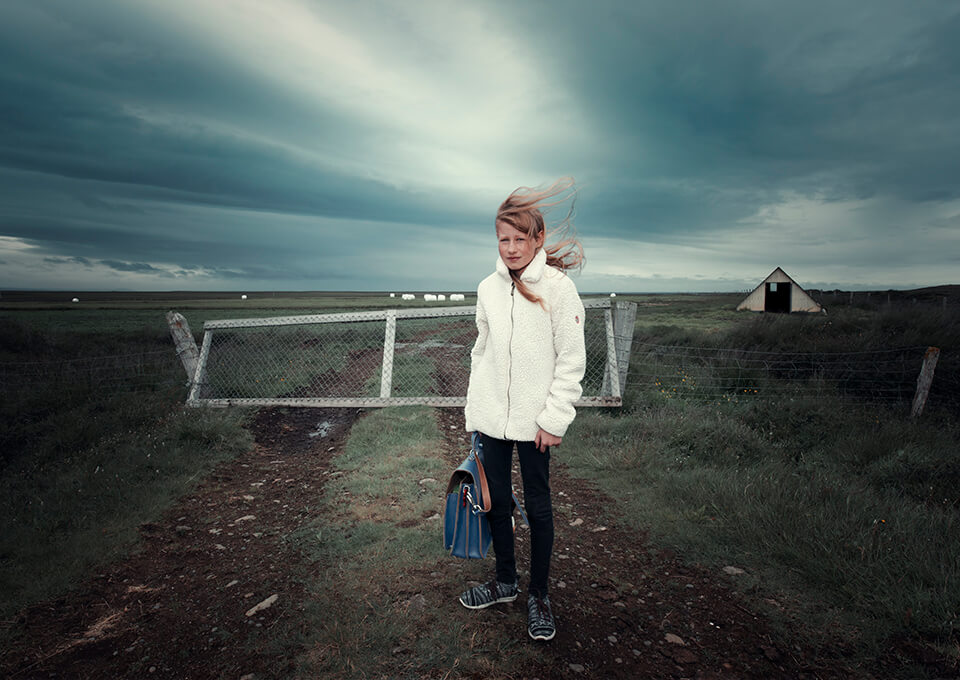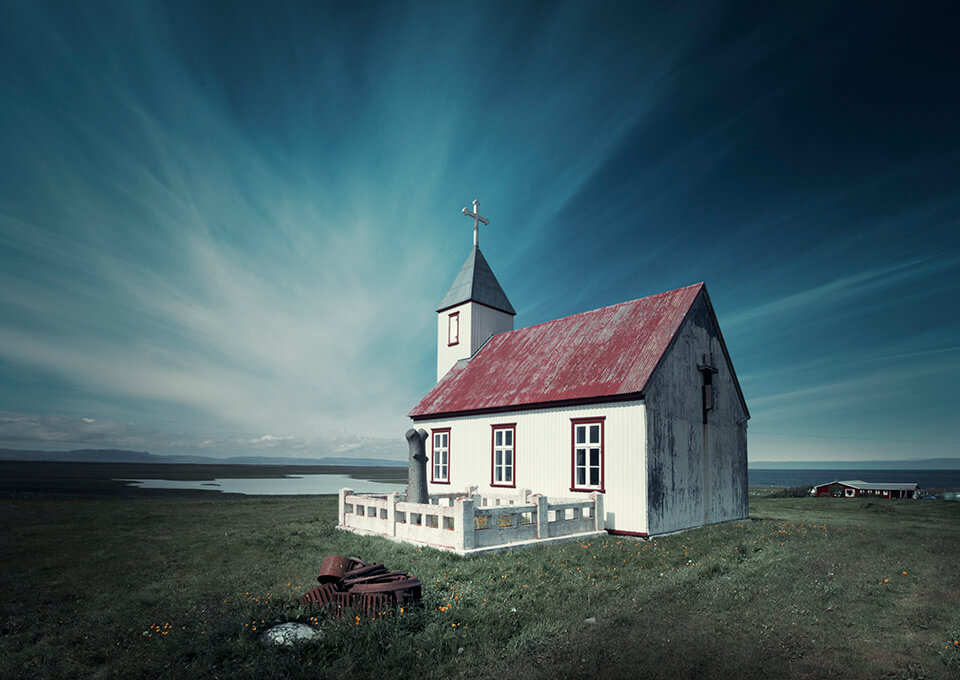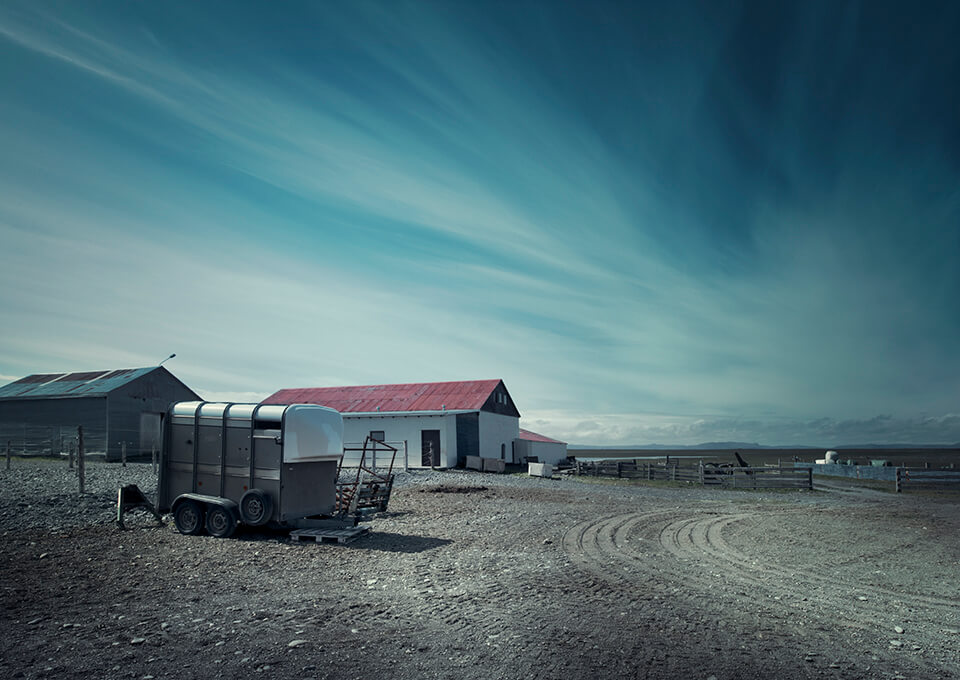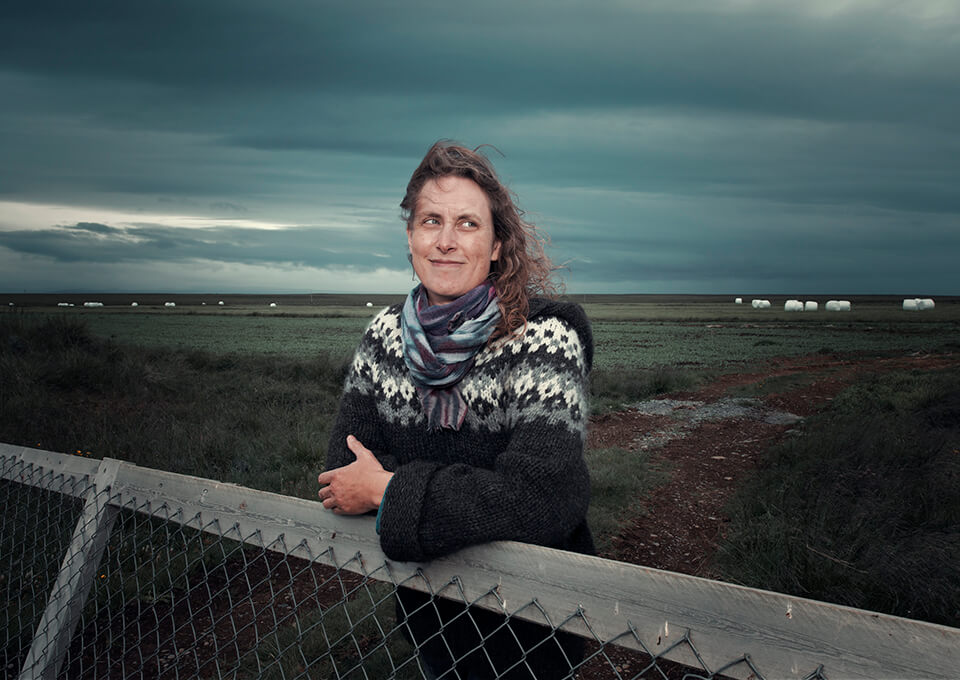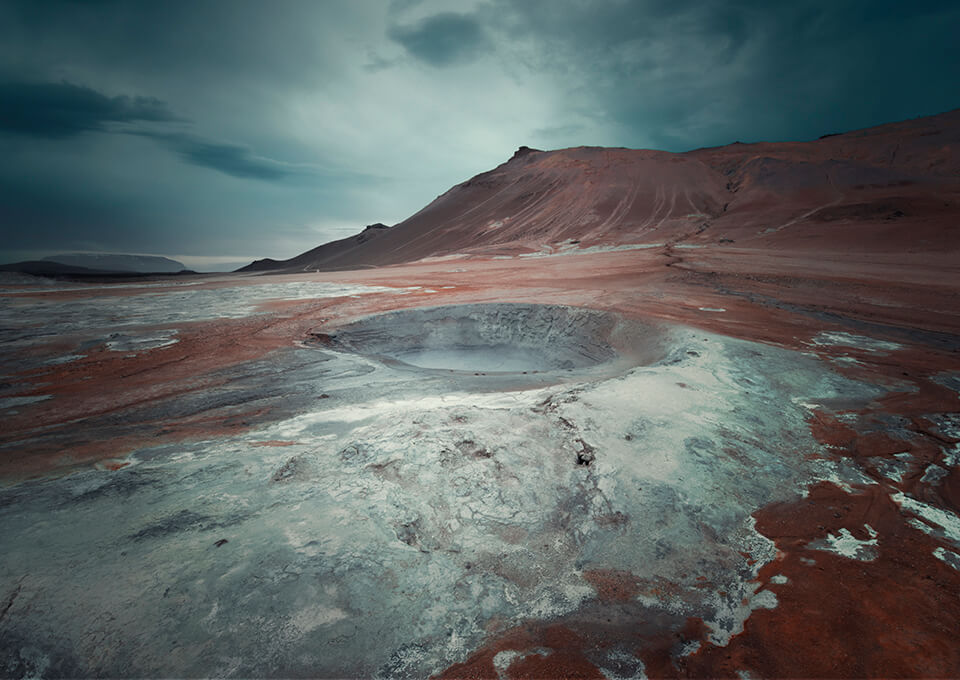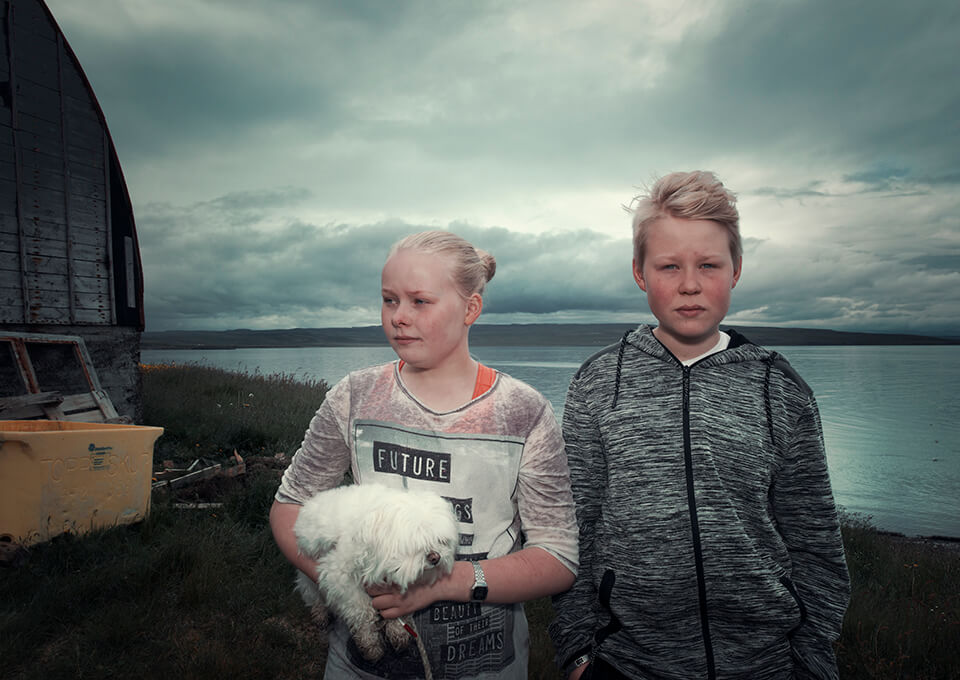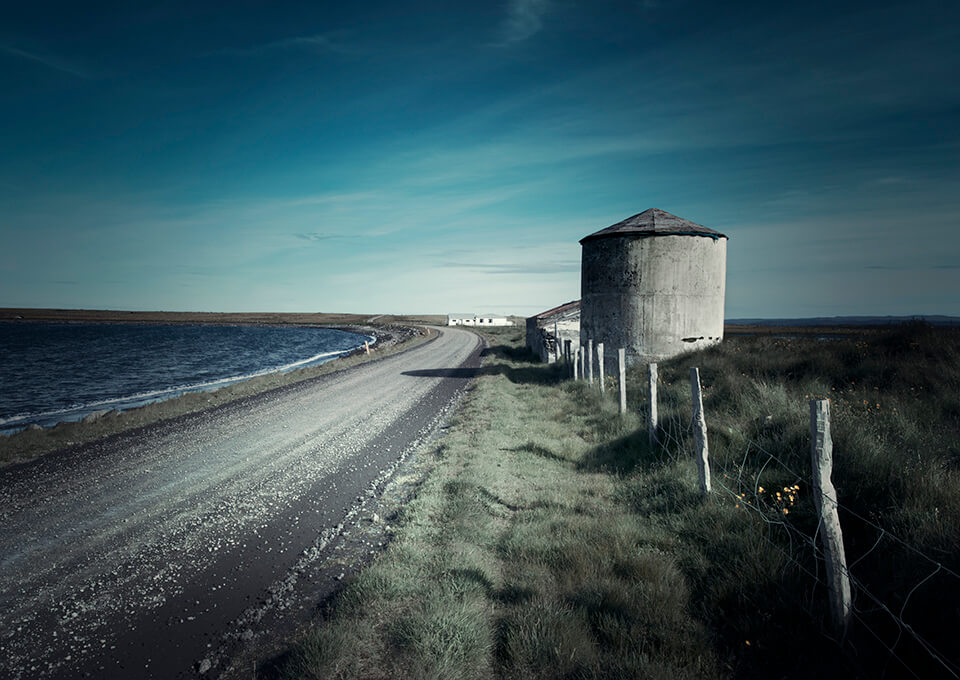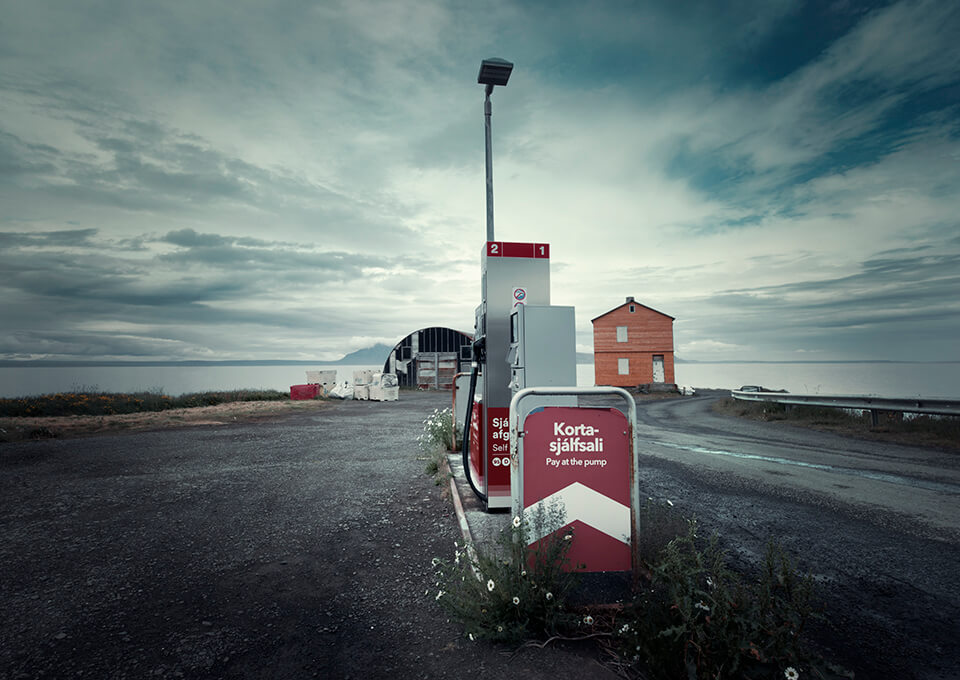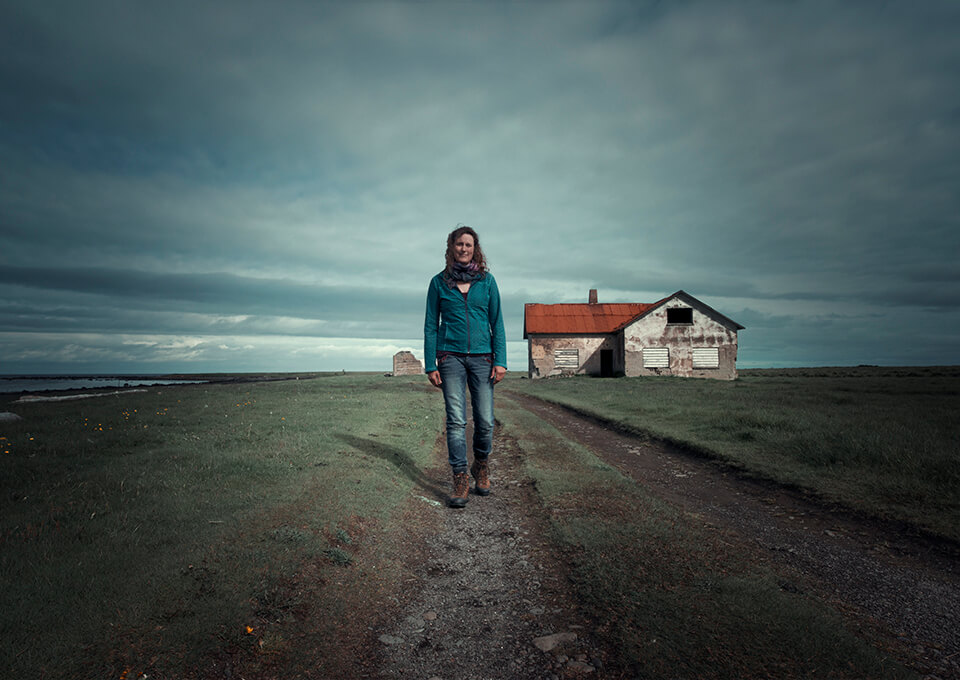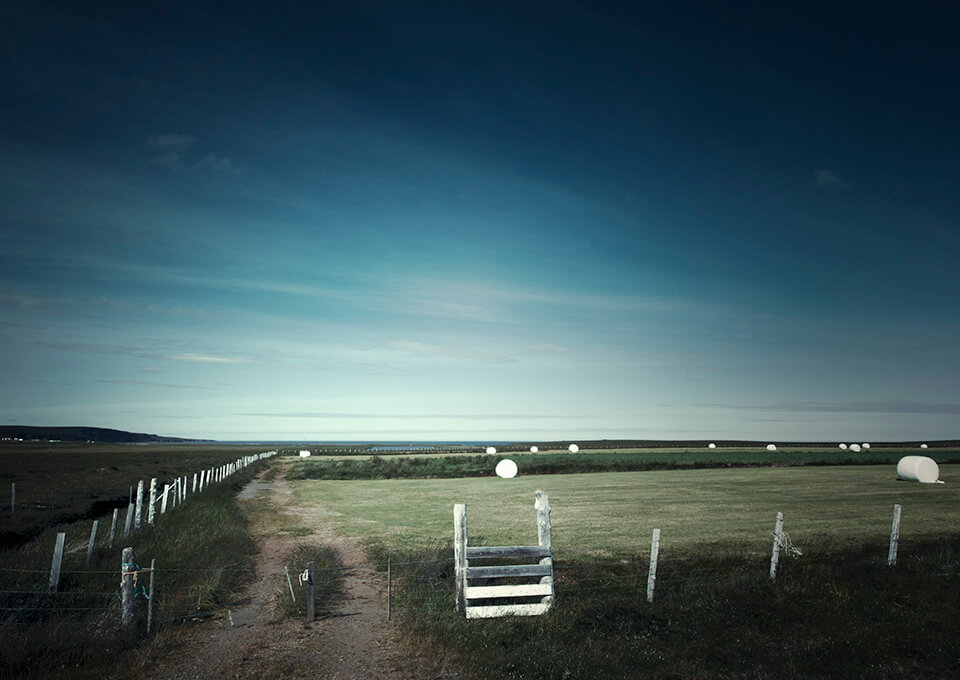They cherish desolation, even seek solitude or never leave the quiet bay where they were once born. It is not that they do not like people or want to turn their back on the world, it’s just that they prosper in tranquility and silence. Nevertheless life can be harsh when shops, schools and fish factories are closing down.
Churches stand alone and lonely in abandoned fields. Services are no longer held every week. Sometimes they are used for other purposes by optimistic Icelanders. For coffee and waffles for example in the basement, while you wander through a photo exhibition on the life of a minister on the ground floor.
A farmer turns circles in his field. It’s time to make hay. The cut grass will immediately be caught in a round plastic bale. Numbers on top of it indicate the type of grass. In winter, it must keep the sheep and horses alive.
Geothermal fields near Hverir
For me, Iceland is too empty, but for the Dutch farmer Mirjam, the Netherlands was too full. Perhaps a logical consequence of growing up on a ship in Friesland.
First she had a farm closer to the waterfalls of Dettifoss and the big geothermal fields near Hverir with her Icelandic husband. But they had to leave there, so they went north.
Bakkafjörður
In Bakkafjörður a small fishing community we meet Njall (16), Himri (14) and Þorey (12) at the bay. They are walking their dog. “For the fifth time,” Þorey sighed after my question about what they do all day long. The only shop and the school has been closed this winter. “But maybe a restaurant will be housed in my grandfather’s house,” says Himri excitedly.
We follow the road to the far northeast, across the peninsula of Langanes. We don’t see many people, just hundreds of birds.
Eiders or cuddy ducks
But even for many Icelanders, the northeast is too inhospitable. It sometimes happened that people just got out of bed in the morning and disappeared, the duvet and the coffee still warm. Eider ducks and lambs became the new inhabitants.
Images: Nicole Franken – Text: Anneke de Bundel

